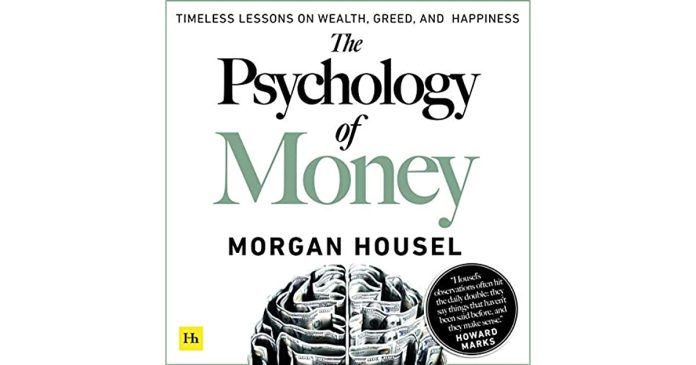You can never get enough of them
There were so many financial gurus in today’s world when I started my financial freedom journey; I only had access to books.
I found them on Amazon or saw them in my college library. Some didn’t make sense to a 20-year-old, but some introduced me to concepts that defined my relationship with money.
Over time with the help of the internet and word of mouth, I stumbled upon more crazy books that shifted my perspective about making money and building wealth.
 Learn More
Learn MoreToday I am sharing the best lessons from these books so you can skip reading them. I’ll start with the basics and then progress with high-level lessons.
Read also: 3 self improvement habits that are too good to ignore (check this out)
10 Money Lessons I Learned From the Best Finance & Business Books
1. You may hate Rich Dad Poor Dad by Robert T. Kiyosaki. But Kiyosaki made people read and think about money as he made me. It could be crap, but that book taught me about asset creation in layman’s terms. It also encourages readers to think about their finances differently and to seek out possibilities for passive income.
“Wealth is a person’s ability to survive so many numbers of days forward — or, if I stopped working today, how long could I survive?”
— Robert T. Kiyosaki
2. “The Intelligent Investor” by Benjamin Graham is all about investing and having a long-term perspective on building wealth through stocks and other investments. It emphasizes the importance of research and diversification while investing.
“The stock investor is neither right or wrong because others agreed or disagreed with him; he is right because his facts and analysis are right.”
― Benjamin Graham
3. Thomas J. Stanley and William D. Danko cover the results from their research on American millionaires in “The Millionaire Next Door.” It talks about these millionaires’ lessons, habits, and attitudes that helped them build wealth. Frugality, hard work, and long-term planning are the common practices for acquiring wealth.
“Wealth is more often the result of a lifestyle of hard work, perseverance, planning, and, most of all, self-discipline.”
― Thomas J. Stanley
4. “Your Money or Your Life” by Vicki Robin and Joe Dominguez focuses on the concept of financial independence. It encourages readers to align spending with values to reach their financial goals. It emphasizes the importance of living below your means and investing in yourself.
“Money is something you trade your life energy for. You sell your time for money. It doesn’t matter that Ned over there sells his time for a hundred dollars and you sell yours for twenty dollars an hour. Ned’s money is irrelevant to you. The only real asset you have is your time. The hours of your life.”
― Vicki Robin
5. “The Total Money Makeover” by Dave Ramsey: This book offers a step-by-step plan for getting out of debt and building wealth. It emphasizes the importance of creating a budget, saving for emergencies, and investing in a diversified portfolio.
“It is human nature to want it and want it now; it is also a sign of immaturity. Being willing to delay pleasure for a greater result is a sign of maturity.”
― Dave Ramsey
6. The Almanack of Naval Ravikant by Eric Jorgenson is my favorite book of all time. It discusses building wealth without getting lucky. I learned about leveraging from Naval; it made me spend time on activities that grow my network with time through compounding. You can find many benefits of a long-term perspective in this book. Want to read the full review of this mindblowing book? Check here.
“Forget rich versus poor, white-collar versus blue. It’s now leveraged versus unleveraged.”
School, politics, sports, and games train us to compete against others. True rewards — wealth, knowledge, love, fitness, and equanimity — come from ignoring others and improving ourselves.
— Naval Ravikant
7. The Richest Man in Babylon has lessons from ancient Babylon about personal finance, which still makes sense today. The story of Arkad giving wealth lessons to the people of Babolians makes it an exciting read. It talks about the power of compounding and how to make money work for you.
“He who takes advice about his savings from one who is inexperienced in such matters will pay with his savings for proving the falsity of their opinions.”
— George Samuel Clason
Read also: Here are my 3 biggest mistakes when it come to money (must read)
8. How we act with money goes back to our past, surroundings, and upbringing. Everyone has a different relationship with money which depends on our story. In Psychology of Money, the author Morgan Housel talks about the WHY of money with various examples and anecdotes. Doing well with money has little to do with your smartness and more with your behavior. Read this to get deeper into your money behavior.
“Spending money to show people how much money you have is the fastest way to have less money.”
― Morgan
Contributed by Shreya Badonia
For more information and updates join our WhatsApp group HERE
Follow us on Twitter HERE
Join our Telegram group HERE













![The 17 Habits Of Truly Wealthy People That you can easily adopt now [Real powerful stuff]](https://worldfamilydigest.com/wp-content/uploads/2022/02/FA033A84-800B-424D-8DEA-2BB8AD9E91F6-100x70.jpeg)

